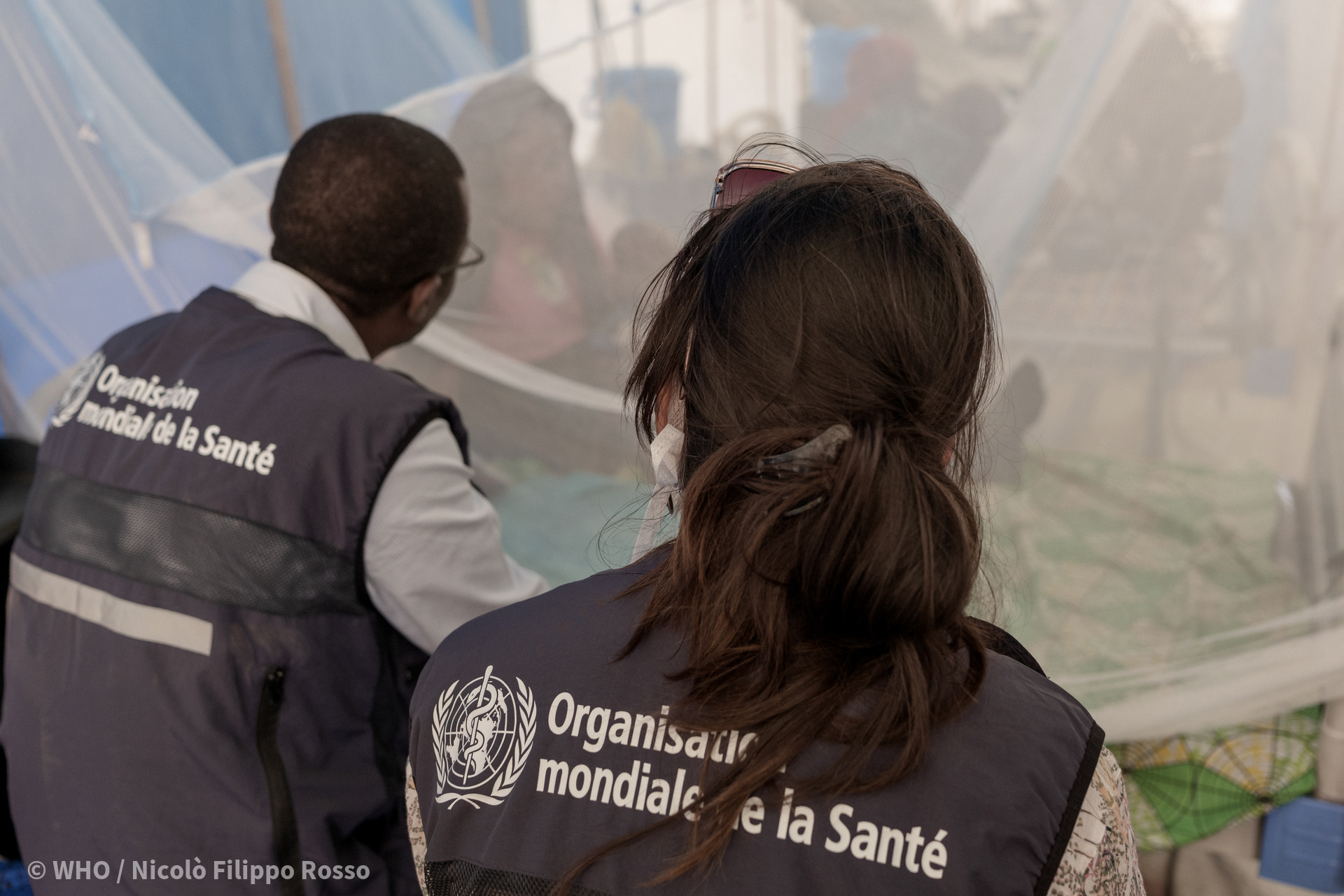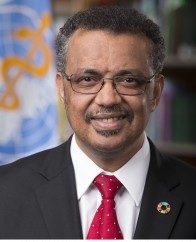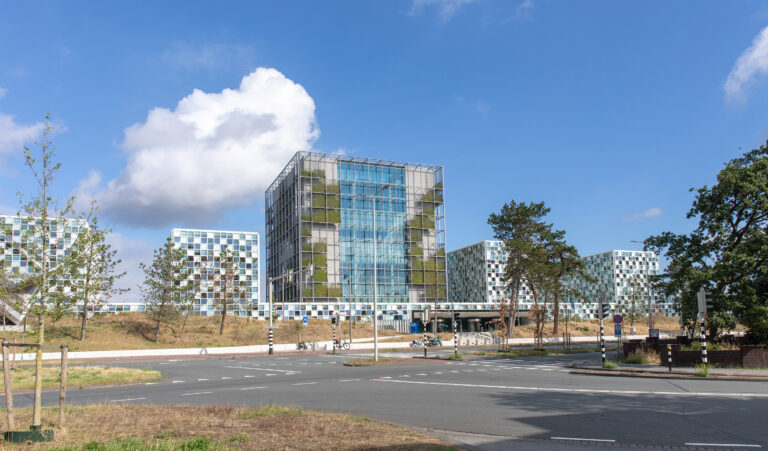
WHO staff speak to Sudanese refugees in the malnutrition unit at a health centre run by MSF France in Adre, Chad, on 3 July 2024. CREDIT WHO / Nicolò Filippo Rosso
By Tedros Adhanom Ghebreyesus*
Director-General, World Health Organization
Port Sudan: According to available data, the ongoing conflict has so far claimed more than 20,000 lives in Sudan, which is an underestimate, displaced over 10 million people inside the country, and forced another 2 million to flee to neighbouring countries. This is the largest internal displacement of people in the world today.
The scale of the emergency is shocking, as is the insufficient action being taken to curtail the conflict and respond to the suffering it is causing.
This is manifesting itself in other ways, including insufficient levels of funding, far too many attacks on healthcare with the count already past 100, attacks on other humanitarians and the people they serve, and the inability to secure unfettered cross border and cross-line access for humanitarian relief.
The conflict has left some 25 million people — more than half of the country’s population — in dire need of humanitarian aid.
Of these, 14.7 million require urgent assistance for a range of life-saving support, for which the humanitarian sector has requested 2.7 billion US dollars, which is less than half funded.
But we must focus on all people in need – all 25 million – and this means additional resources are required to meet their needs.
We are calling on the world to wake up and help Sudan out of the nightmare it is living through.
Yesterday, I visited a WHO-supported pediatric facility in Port Sudan, which provides life-saving care for infants suffering from acute malnutrition. I was shaken by the state of many of the tiny, wasted children, and stunned by the harrowing accounts of their mothers who have been displaced multiple times due to the insecurity, thankful at least to find refuge at this clinic.
Today I visited the Shagya site where internally displaced people from various parts of the country gather and can access essential primary health care services, being delivered at another WHO-supported health facility.
Sudanese are suffering through a perfect storm of crises:
- over 500 days of conflict;
- the largest level of displacement in the world;
- famine in some parts, and risk of this in others. 25.6 million people – over half of Sudan’s population – are expected to face high levels of acute food insecurity;
- disasters including flooding leading to dams bursting;
- disease outbreaks, including cholera, malaria, dengue and measles, with the risk of mpox;
- multiple reported incidents of conflict-related sexual violence; and
- the near collapse of much of the country’s health system – an estimated 70-80% of the health facilities not fully functioning across the country.
WHO and our partners have been raising the alert on Sudan since the conflict began, and working to meet some of the challenges. But speak to many people in Sudan today and they will tell you that the crisis is falling on deaf ears around the world.
The international community has seemingly forgotten about Sudan and is paying little heed to the conflict tearing it apart, with repercussions in the region.
What do we need?
- We need an immediate ceasefire, leading to a lasting political solution. The best medicine is peace.
- We need to protect health facilities, health workers and patients – health should not be targeted.
- We need sustained access to deliver supplies and aid.
- We need to scale up disease surveillance; in some states, we are blind to what is happening due to the insecurity on the ground.
- We need to scale up vaccination coverage against cholera, polio, measles and other diseases spreading in affected areas.
- And we need a massive increase in finances from the international community to scale up the response.
If we do this, we will:
- save millions of lives, predominantly children and women, who are today living on the edge of survival;
- and we will provide the much-needed calm that all people desperately need and deserve;
- and deliver hope for this proud country.
We must not fail the people of Sudan.
*Excerpts from a press conference in Port Sudan today.






